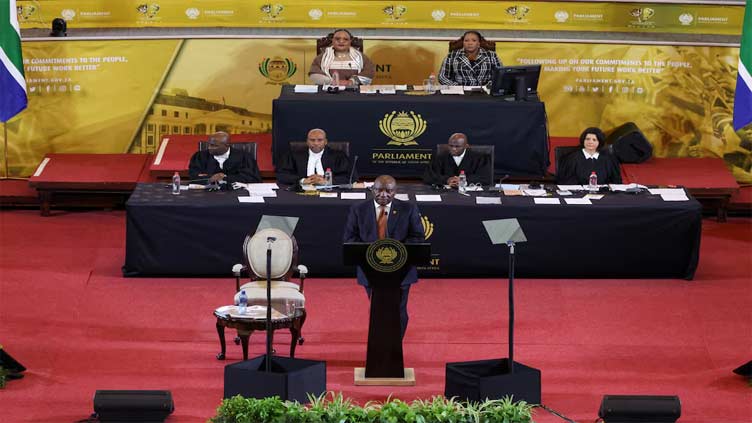South Africa leader pledges to revive economy, include the poor

World
South Africa suffers some of the world's biggest divides between rich and poor
CAPE TOWN (Reuters) - President Cyril Ramaphosa pledged to revive South Africa's flagging economy and extend prosperity to the many left out of it, by resuscitating factories and farms, building roads and seizing the opportunities presented by green energy.
In his first policy speech to a new parliament since the African National Congress (ANC) lost its ruling majority in May - forcing it to team up with its rivals - Ramaphosa also pledged to get on top of the nation's debt burden.
"We have a clear intention to turn our country into a construction site, as roads, bridges, houses, schools, hospitals and clinics are built ... and as new power lines are installed," the president said at the official opening of a new five-year term of parliament.
He acknowledged that in the past 15 years, Africa's most industrialised economy had "barely grown," and "unemployment, poverty and inequality (remain) ... extremely high."
After an optimistic decade following the end of apartheid and the election of Nelson Mandela, South Africa has been mired in political troubles, including a lumbering response to its deadly HIV/AIDS epidemic, grand corruption and a systemic failure to deliver services or even keep the lights on.
Voters punished the ANC for these shortcomings in the May 29 election, leaving it with just 40% of the vote and forcing it into a unity government, mostly with the main opposition Democratic Alliance (DA), for the first time in three decades.

South Africa suffers some of the world's biggest divides between rich and poor. Ramaphosa, formerly one of the country's wealthiest Black businessmen, used the word "inclusive" 18 times in his speech to signal his intention to tackle economic injustice.
'ENORMOUS OPPORTUNITY'
Outlining his administration's plans for the next five years, Ramaphosa said the government would "pursue macroeconomic policy that supports growth and development," while also stabilising the national debt.
"We are firmly committed to steadily reducing the cost of servicing our debt so that we can redirect funds towards other critical social and economic needs," he said.
Other policies included overhauling the country's ailing freight rail network, training young people in digital skills and investing in the green technologies being adopted the world over to mitigate climate change.
"We will seize the enormous opportunity in renewable energy for inclusive growth," he said. "We ... have a huge pipeline of renewable energy projects representing over 22,500 megawatts."
The new cabinet, which held its first meeting last weekend, was determined to work together in the interests of all South Africans, Ramaphosa said, echoing remarks on Wednesday by the DA leader, John Steenhuisen.
In those remarks, Steenhuisen said the coalition government's plans had broad buy-in from its different political parties and that it was working better than expected.
Ramaphosa said the coalition partners had taken the path of a "cooperation nation".


